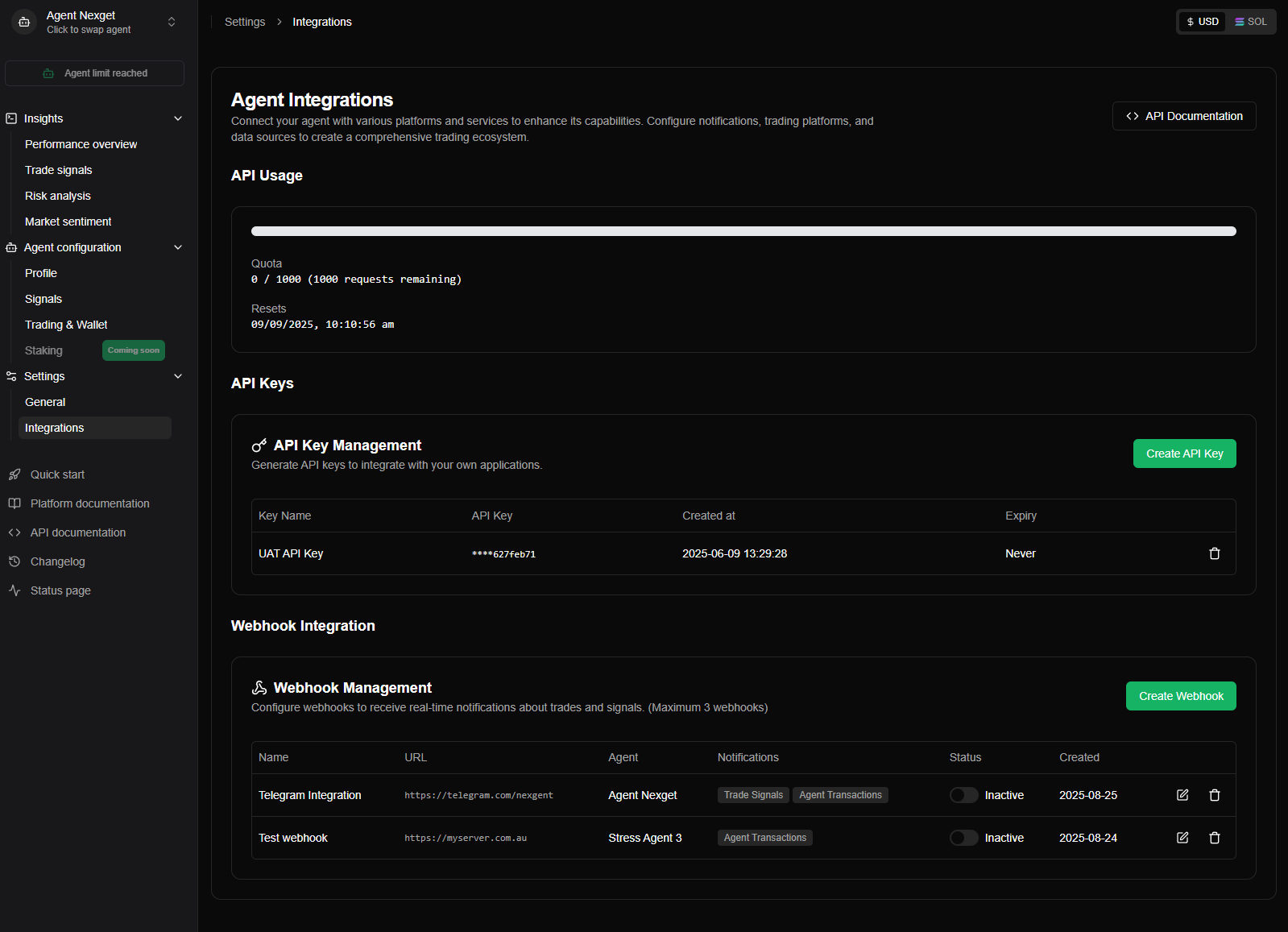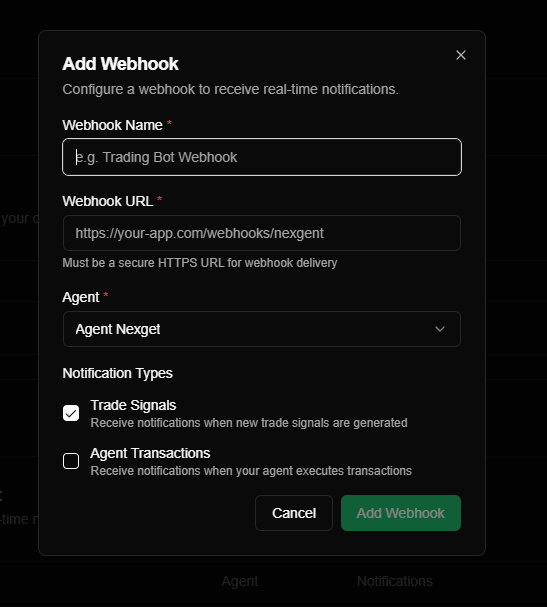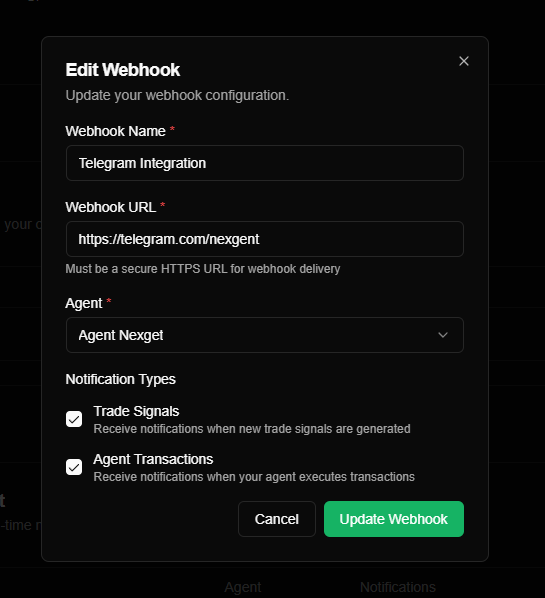Webhook Integration
The Webhook Integration page allows you to connect external systems (such as messaging apps, servers, or custom dashboards) to receive real-time notifications from Nexgent. You can configure up to 3 active webhooks per account.
Webhook Management Overview
The management table displays all of your configured webhooks, their target URLs, assigned agents, and notification preferences.
Key fields include:
- Name – The friendly label you assign to identify the webhook
- URL – The destination HTTPS endpoint where notifications are sent
- Agent – The AI agent linked to the webhook
- Notifications – The event types (e.g. Trade Signals, Agent Transactions) that trigger payload delivery
- Status – Indicates if the webhook is currently Active or Inactive
- Created – The date the webhook was first created
From this panel, you can toggle activation, edit settings, or delete an existing webhook.
Adding a Webhook
To create a new webhook, click Create Webhook.
Fields include:
- Webhook Name – A descriptive name for your integration (e.g., Trading Bot Webhook, Telegram Alerts)
- Webhook URL – A secure HTTPS endpoint that will receive POST requests
- Agent – Select which of your Nexgent AI agents will trigger this webhook
- Notification Types
- Trade Signals – Receive notifications whenever new trade signals are generated
- Agent Transactions – Receive notifications whenever the selected agent executes a trade
Click Add Webhook to save.
Editing a Webhook
You can update an existing webhook at any time by selecting the edit icon.
Changes you can make:
- Rename the webhook
- Update the destination URL
- Reassign the linked agent
- Modify the notification types
Once updated, changes take effect immediately.
Notification Types
Currently, the following notification types are supported:
- Trade Signals – Triggered when Nexgent AI agents generate new signals
- Agent Transactions – Triggered when agents execute live transactions
📘 This list will expand in the future as additional event types become available.
Authentication (Coming Soon)
⚠️ Webhook authentication is not yet supported.
At present, webhooks send unauthenticated POST requests directly to the configured URL.
Authentication options such as secret tokens and signature verification will be introduced in upcoming releases, allowing you to validate the authenticity of Nexgent webhook calls.
By integrating webhooks, you can seamlessly connect Nexgent’s real-time trading intelligence into your own Telegram channels, monitoring dashboards, bots, or custom applications.



